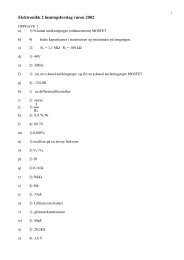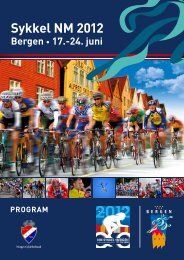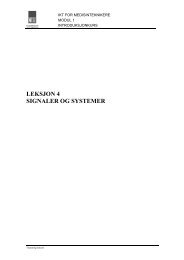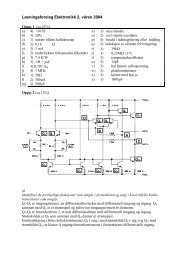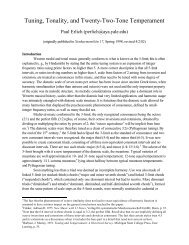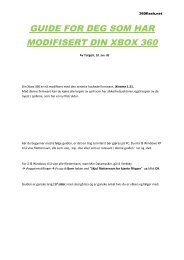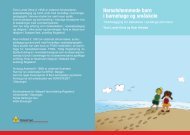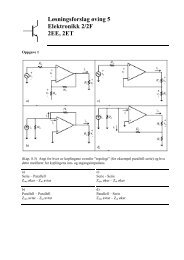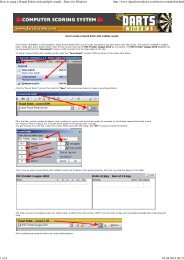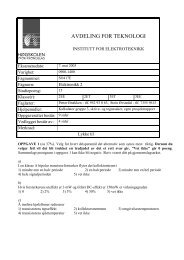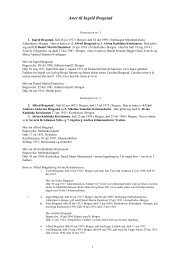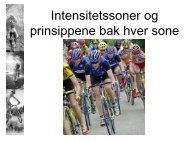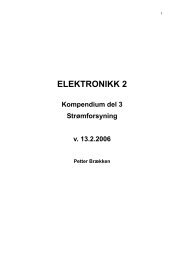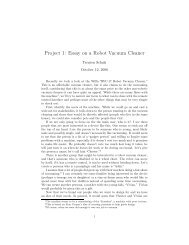The Online World resources handbook
The Online World resources handbook
The Online World resources handbook
You also want an ePaper? Increase the reach of your titles
YUMPU automatically turns print PDFs into web optimized ePapers that Google loves.
Cheaper and better communication http://home.eunet.no/~presno/bok/13.html<br />
Global Network, and <strong>The</strong> Microsoft Network (MSN). (See Appendix 1 for links.)<br />
Reducing your cost of using the Web<br />
<strong>The</strong>re are so many things that you can do to reduce the cost of your use of the Web, and<br />
pointers to them are given throughout the <strong>handbook</strong>:<br />
<strong>The</strong> speed of your modem or network connection. A minimum of 28.8 kbps or<br />
higher is recomended for connecting with a modem. With anything less than 28.8<br />
kbps you will notice a significant "lag time" when attempting to download<br />
software or view graphic intensive Web pages. Since there are many places on the<br />
Web to get the same information, try to avoid such overly large, slow loading<br />
pages.<br />
Select an Internet access number that matches the speed of your modem. If you<br />
are dialing into an access number that only supports 28.8 kbps modems, 28.8 kbps<br />
is as fast as you will ever connect, even if you have a 56 kbps modem installed in<br />
your computer.<br />
Line noise on the phone line running into your home can adversly affect your<br />
ability to maintain a consistent Internet connection with a modem. To check for<br />
line noise, plug a phone into the same line that your modem uses and listen for<br />
static (while you are not connected to the Internet). Static can cause disruptions in<br />
the transmission of data to and from the Internet causing you to lose your<br />
connection. If you hear static on the line, you might want to call your phone<br />
company and have the line checked.<br />
Use the web at times when traffic is low. Web traffic tends to increase throughout<br />
the day and peaks around the early evening. As traffic increases, speed decreases!<br />
See the Internet Traffic Report for hints.<br />
Retrieve Web pages by electronic mail (see "<strong>The</strong> <strong>World</strong> Wide Web by email" in<br />
Chapter 12).<br />
Leave the graphics behind and travel the Web at much higher speeds. To set it:<br />
In Netscape, click on Options, Autoload Image, and Save Options.<br />
A faster PC processor (say 500 Mhz) will allow you to surf the Web at faster<br />
speeds than a slower one (say 200 Mhz).<br />
A computer with more available memory will tend to surf faster than one with less.<br />
One way to avoid slowdowns in this area is to avoid opening other software<br />
applications that are not needed while you are surfing the Web.<br />
A full or highly fragmented hard disk can act to slow Web surfing considerably. To<br />
deframent your hard disk in Windows 95 or 98, click Start> Programs ><br />
Accessories > System Tools > Disk Defragmenter. It will prompt you for the drive<br />
to defragment. Choose the drive letter that corresponds to your hard disk (usually<br />
C), click "Ok" and "Start".<br />
Your Web Browser's cache is a storage area on your computer's hard disk. As you<br />
surf the Web, the browser stores the Web pages you visit in the cache, up to the<br />
disk space limit that you set. Your browser can display cached Web pages faster<br />
since it doesn't have to go to the Internet to retrieve them; rather it goes right to<br />
your hard disk. Consider increasing your browser's cache size limit.<br />
If you're using DOS, use Lynx from your provider's Unix prompt to read Web<br />
pages where graphics don't matter. (See Appendix 6.)<br />
<strong>The</strong>n there's the issue of offline preparation. What else would you expect here than a<br />
plug for having the <strong>handbook</strong> on your hard disk? Registered readers can retrieve the html<br />
version after each update as one compressed file.<br />
Decompress the transportation file, and store it in a directory of choice on your hard<br />
disk. Netscape users can click on File, and then Open File... Open the location of the<br />
<strong>handbook</strong>'s index file (index.html), and add it to your browser's Bookmarks for easy<br />
access.<br />
Retrieve a copy of the free AltaVista Discovery program (see Chapter 14) for<br />
Windows 95/98, or the Lookfor shareware program for MS DOS from the page<br />
referenced above. Use either of these programs to locate interesting Web pages.<br />
2 of 7 23.11.2009 15:48



